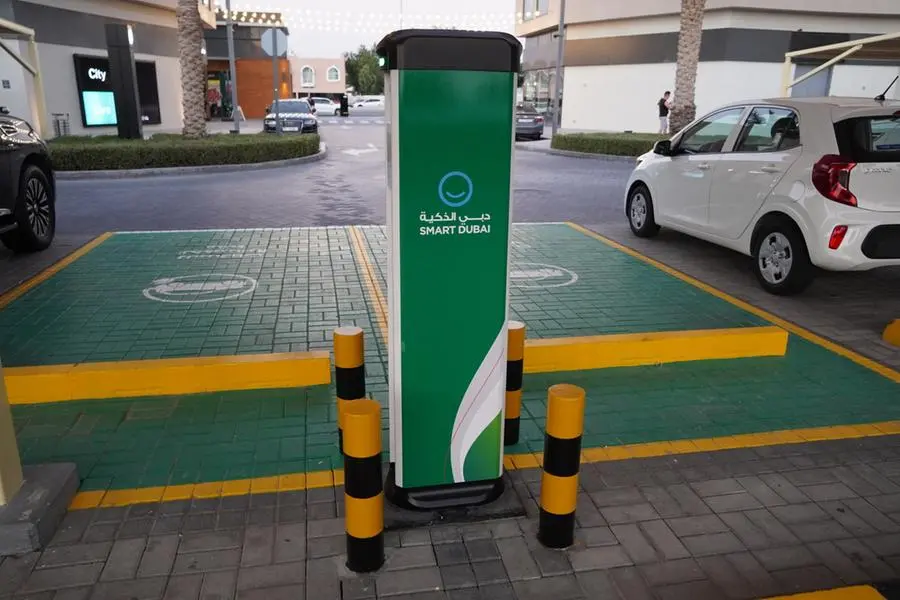PHOTO
The UAE is ambitious about reducing its emissions and is transforming its mobility sector, focusing on measures that include electric vehicle (EV) adoption and enhanced public transport, a top official said on Wednesday.
Speaking at an event held by the National Dialogue on Climate Ambition on decarbonizing ground mobility in Abu Dhabi, Minister of Climate Change and Environment Mariam AlMheiri said the country aims to increase the number of alternating current (AC) and direct current (DC) charging stations by the end of the year as part of a national EV policy.
She said while the transport sector is the fastest growing contributor to greenhouse gas emissions, which if left unchecked could account for 30% of total emissions in the future, but the UAE plans to reduce those emissions.
EV targets
The Ministry of Energy & Infrastructure’s (MOEI) UAE Electric Vehicle Policy includes having 914 AC and DC charging stations for electric vehicles by the end of 2023.
The ministry is also working to create an EV GCC Corridor, to establish fast charging stations on the border between Saudi Arabia and Oman, facilitating the movement of EVs between countries.
Other plans include making the UAE’s car fleet 50% electric vehicles by 2050, 25% plug in hybrids (PHEV), with the remainder to be internal combustion engines (ICE), compressed natural gas (CNG) and hydrogen (H2) vehicles.
Meanwhile, buses are to be 70% electric, 15% plug in hybrid and the remainder to ICE, CNG and H2.
The target for trucks in the UAE is 10% PHEV and 40% hybrid, with the remainder to be ICE, CNG, H2 or other vehicles.
(Reporting by Imogen Lillywhite; editing by Brinda Darasha)
imogen.lillywhite@lseg.com





















